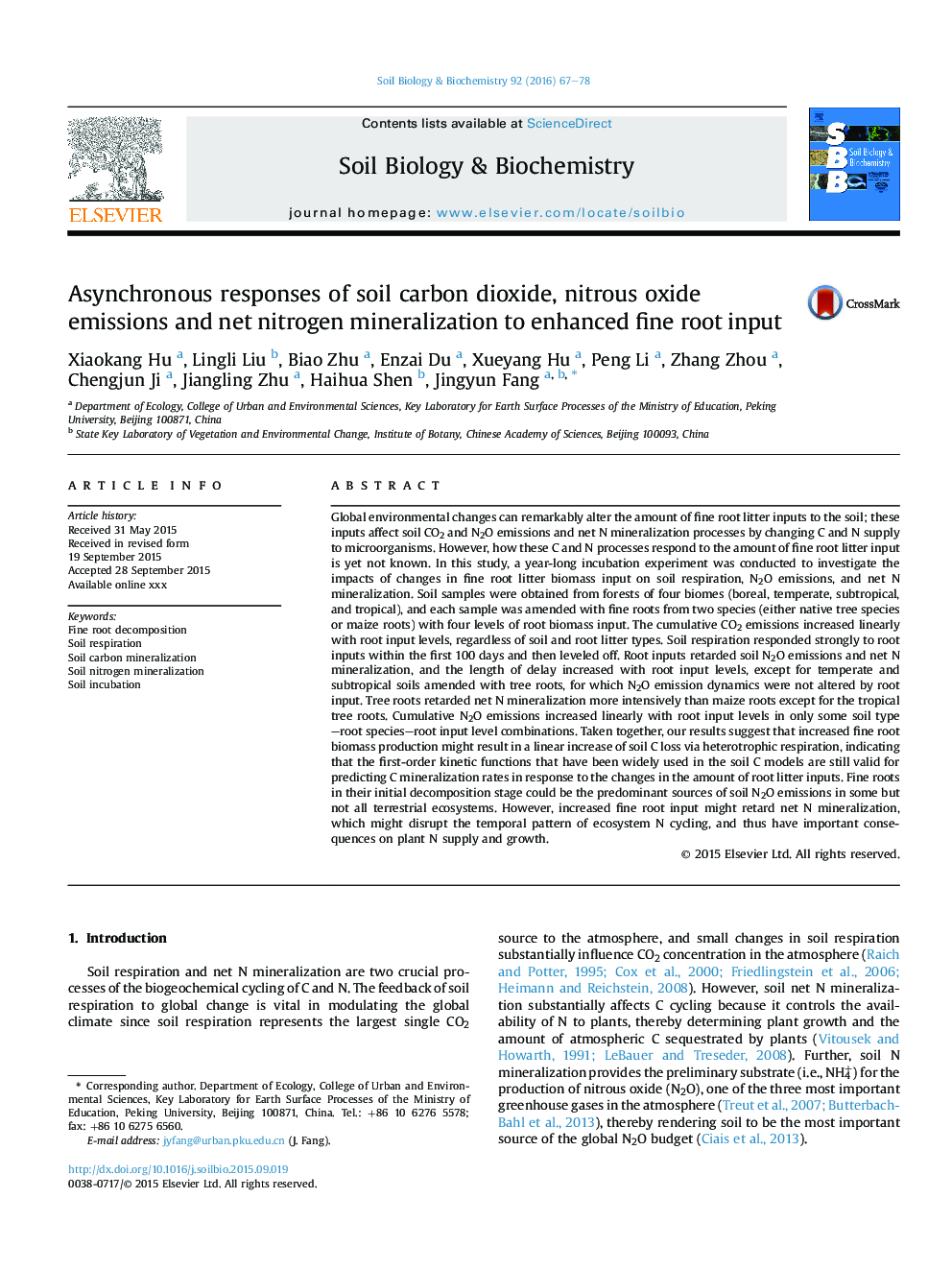| Article ID | Journal | Published Year | Pages | File Type |
|---|---|---|---|---|
| 8363647 | Soil Biology and Biochemistry | 2016 | 12 Pages |
Abstract
Global environmental changes can remarkably alter the amount of fine root litter inputs to the soil; these inputs affect soil CO2 and N2O emissions and net N mineralization processes by changing C and N supply to microorganisms. However, how these C and N processes respond to the amount of fine root litter input is yet not known. In this study, a year-long incubation experiment was conducted to investigate the impacts of changes in fine root litter biomass input on soil respiration, N2O emissions, and net N mineralization. Soil samples were obtained from forests of four biomes (boreal, temperate, subtropical, and tropical), and each sample was amended with fine roots from two species (either native tree species or maize roots) with four levels of root biomass input. The cumulative CO2 emissions increased linearly with root input levels, regardless of soil and root litter types. Soil respiration responded strongly to root inputs within the first 100 days and then leveled off. Root inputs retarded soil N2O emissions and net N mineralization, and the length of delay increased with root input levels, except for temperate and subtropical soils amended with tree roots, for which N2O emission dynamics were not altered by root input. Tree roots retarded net N mineralization more intensively than maize roots except for the tropical tree roots. Cumulative N2O emissions increased linearly with root input levels in only some soil type-root species-root input level combinations. Taken together, our results suggest that increased fine root biomass production might result in a linear increase of soil C loss via heterotrophic respiration, indicating that the first-order kinetic functions that have been widely used in the soil C models are still valid for predicting C mineralization rates in response to the changes in the amount of root litter inputs. Fine roots in their initial decomposition stage could be the predominant sources of soil N2O emissions in some but not all terrestrial ecosystems. However, increased fine root input might retard net N mineralization, which might disrupt the temporal pattern of ecosystem N cycling, and thus have important consequences on plant N supply and growth.
Related Topics
Life Sciences
Agricultural and Biological Sciences
Soil Science
Authors
Xiaokang Hu, Lingli Liu, Biao Zhu, Enzai Du, Xueyang Hu, Peng Li, Zhang Zhou, Chengjun Ji, Jiangling Zhu, Haihua Shen, Jingyun Fang,
